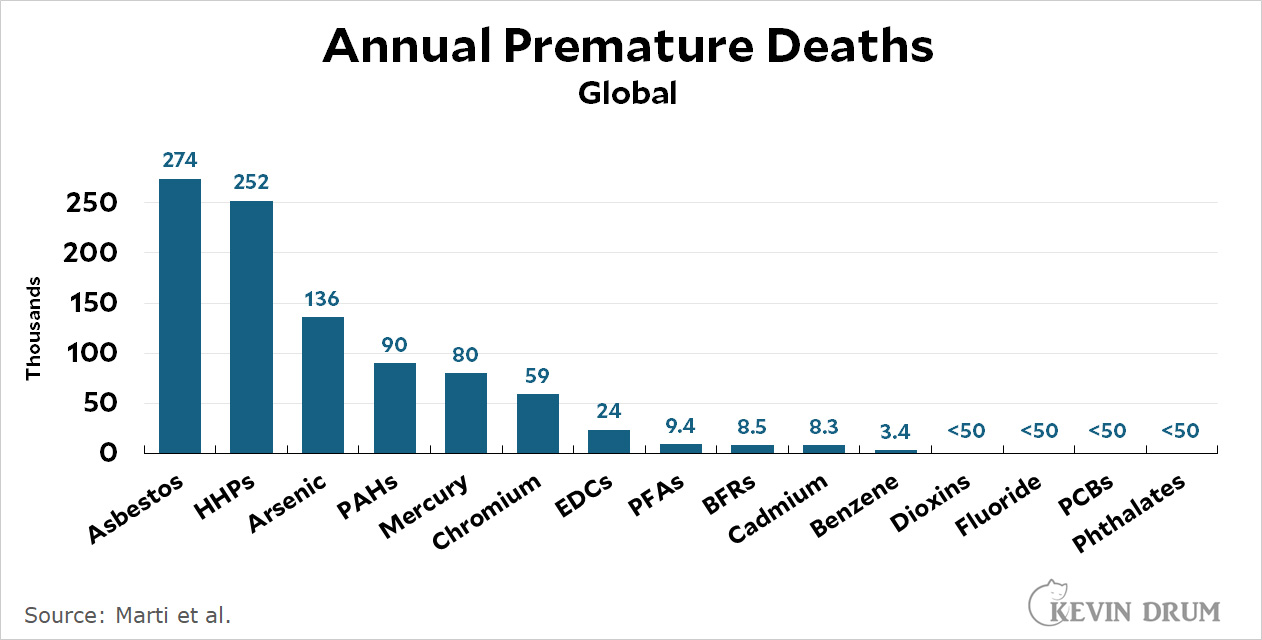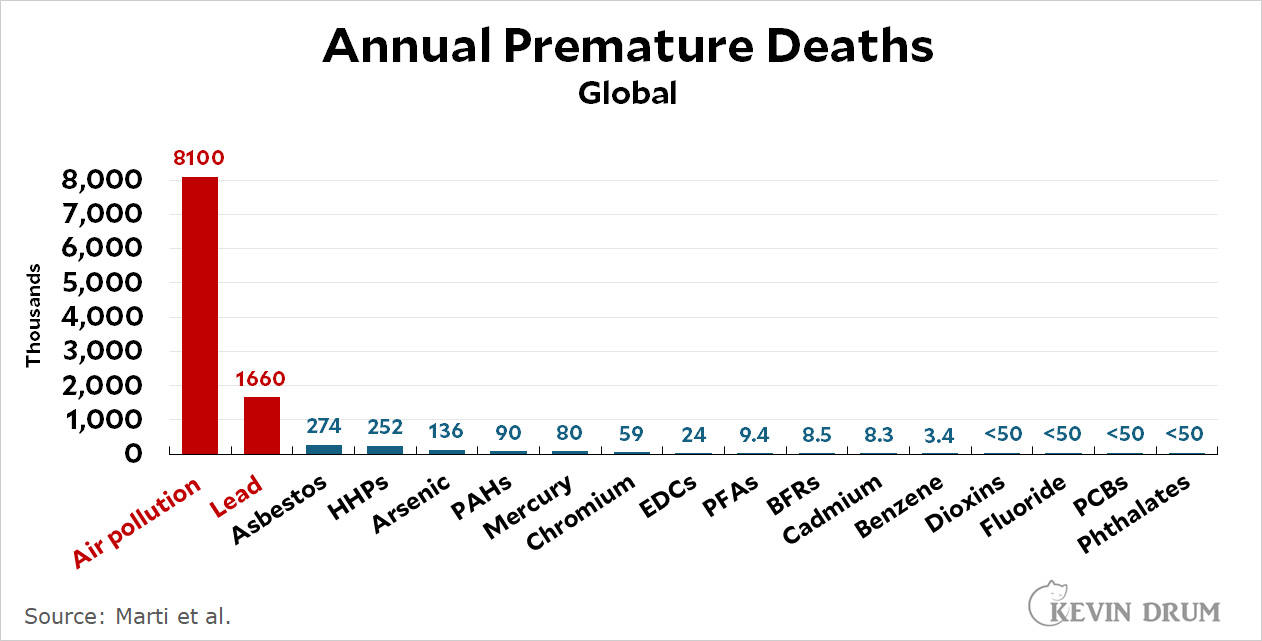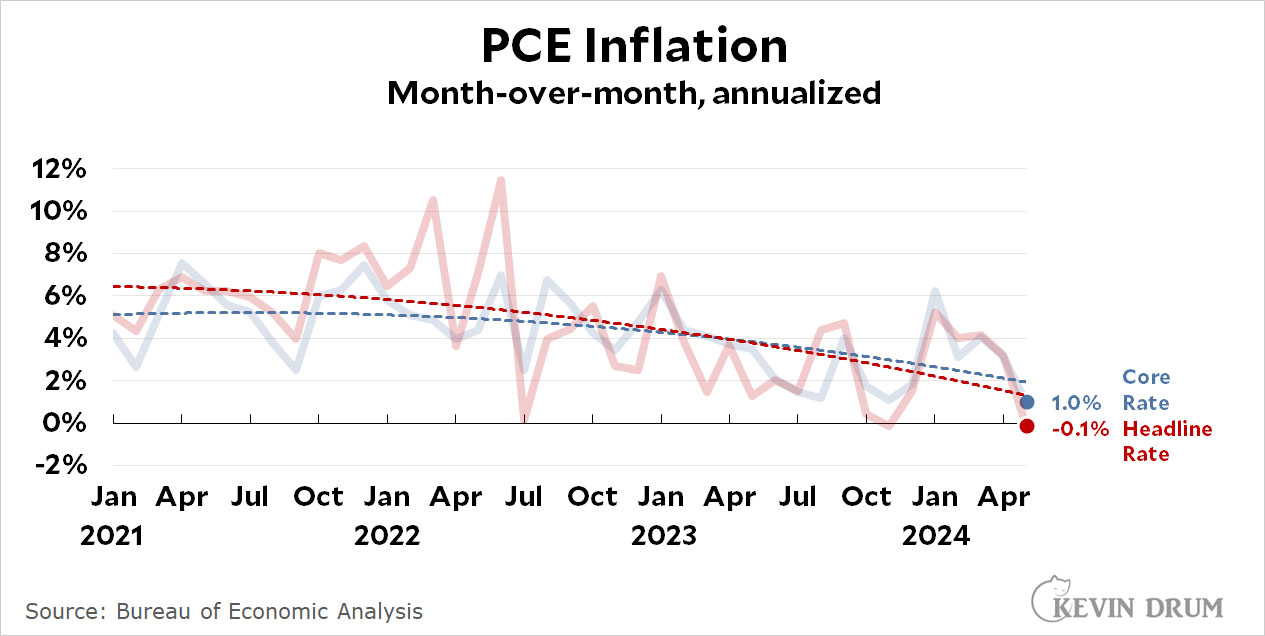Donald Trump also flitted from subject to subject during Thursday's debate, but his primary sin was his ceaseless stream of lies. Here are a baker's dozen of them.
1. Tariffs:
Not going to drive [prices] higher. It’s just going to cause countries that have been ripping us off for years, like China and many others, in all fairness to China — it’s going to just force them to pay us a lot of money, reduce our deficit tremendously, and give us a lot of power for other things.
Flat out lie. Tariffs are paid by the importer, who then has to pass along the cost increase to its customers.
2. Social Security:
This man is going to single-handedly destroy Social Security. These millions and millions of people coming in, they’re trying to put them on Social Security. He will wipe out Social Security. He will wipe out Medicare.
Illegal immigrants aren't eligible for Social Security. In fact, they help Social Security because they pay taxes but never get any of the benefits.
3. Abortion:
If you look at this whole question that you’re asking, a complex, but not really complex — 51 years ago, you had Roe v. Wade, and everybody wanted to get it back to the states, everybody, without exception. Democrats, Republicans, liberals, conservatives, everybody wanted it back. Religious leaders.
Flat out lie. It's simply untrue that "everybody" wanted to overturn Roe. v. Wade.
4. Abortion again:
If you look at the former governor of Virginia, he was willing to do this. He said, we’ll put the baby aside and we’ll determine what we do with the baby. Meaning, we’ll kill the baby.
Former Gov. Ralph Northram never said this, no matter how many times Trump claims it.
5. Illegal immigration:
He decided to open up our border, open up our country to people that are from prisons, people that are from mental institutions, insane asylum, terrorists. We have the largest number of terrorists coming into our country right now. All terrorists, all over the world — not just in South America, all over the world. They come from the Middle East, everywhere. All over the world, they’re pouring in.
There is no evidence that terrorists have crossed into the US via the southwestern border.
6. Foreign affairs:
As far as Russia and Ukraine, if we had a real president, a president that knew — that was respected by Putin, he would have never — he would have never invaded Ukraine.... Just like Israel would have never been invaded, in a million years, by Hamas. You know why? Because Iran was broke with me. I wouldn’t let anybody do business with them. They ran out of money. They were broke. They had no money for Hamas. They had no money for anything. No money for terror.
This is ridiculous. Trump did nothing to deter Putin and nothing to deter Iran.
7. January 6:
Nancy Pelosi, if you just watch the news from two days ago, on tape to her daughter, who’s a documentary filmmaker, as they say, what she’s saying, oh, no, it’s my responsibility, I was responsible for this. Because I offered her 10,000 soldiers or National Guard, and she turned them down. And the mayor of — in writing, by the way, the mayor. In writing turned it down, the mayor of D.C. They turned it down.
Flat out lie. Trump didn't offer 10,000 National Guard troops to anyone on January 6.
8. January 6 again:
The unselect committee, which is basically two horrible Republicans that are all gone now, out of office, and Democrats, all Democrats, they destroyed and deleted all of the information they found, because they found out we were right. We were right. And they deleted and destroyed all of the information.
Flat out lie. The January 6 committee didn't destroy anything.
9. Ukraine:
Joe could be a convicted felon with all of the things that he’s done. He’s done horrible things. All of the death caused at the border, telling the Ukrainian people that we’re going to want a billion dollars or you change the prosecutor, otherwise, you’re not getting a billion dollars.
If I ever said that, that’s quid pro quo. That — we’re not going to do anything, we’re not going to give you a billion dollars unless you change your prosecutor having to do with his son.
Flat out lie. The US wanted Ukraine's top prosecutor fired because he was corrupt. It had nothing to do with Hunter Biden, and in any case, Joe Biden was just the messenger for US policy.
10. Inflation:
He caused the inflation. He’s blaming inflation. And he’s right, it’s been very bad. He caused the inflation and it’s killing black families and Hispanic families and just about everybody. It’s killing people. They can’t buy groceries anymore. They can’t. You look at the cost of food where it’s doubled and tripled and quadrupled. They can’t live. They’re not living anymore. He caused this inflation.
Our recent surge in inflation was caused primarily by COVID shortages. Beyond that, it was most likely caused by rescue packages passed under Trump, which were much bigger than Biden's. And food prices haven't doubled or quadrupled; they've gone up about 20%.
11. Criminal justice:
What he has done to the black population is horrible, including the fact that for 10 years he called them superpredators. We can’t, in the 1990s, we can’t forget that. Super predators was his name. And he called it to them for 10, and they’ve taken great offense at it, and now they see it happening.
Flat out lie. Biden never uttered the word superpredator.
12. The environment:
During my four years, I had the best environmental numbers ever. And my top environmental people gave me that statistic just before I walked on the stage, actually.
Trump was a disaster for the environment. Carbon emissions stopped going down under Trump until 2020, when they dropped solely due to COVID.
13. Fentanyl:
Jake, we’re doing very well at addiction until the COVID came along. We had the two-and-a-half, almost three years of like nobody’s ever had before, any country in every way. And then we had to get tough. And it was — the drugs pouring across the border, we’re — it started to increase.
Fentanyl deaths increased from 70,000 to 107,000 over Trump's term. Cocaine overdose deaths also skyrocketed.




